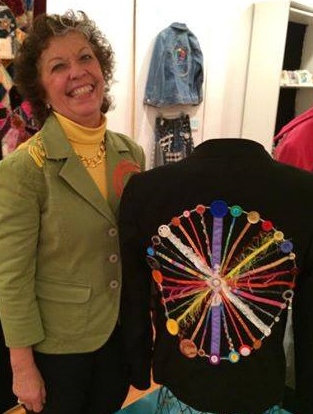Is Your House Haunted by the Mayhem Monster? Five Tools to Solve Behavior Problems with Gifted ADHD Kids: 
Many kids, especially those with ADD, AD/HD or who are Gifted, Creative or Highly Sensitive feel the need to stimulate their brains.
For lack of better methods, they create chaos & crisis. Voila! The Mayhem Monster is born and grows bigger each time it’s activated.
Unfortunately, the Mayhem Monster wrecks havoc on family harmony, homework assignments, friendships, and life in general. Once it takes over, even the best of parents can feel helpless to get rid of it.
But the Mayhem Monster does not have to rule the roost. Over the years, I’ve found these Five Tools to Solve Behavior Problems with Gifted, ADHD Kids.
This blog post was originally published in 2012. Here it is again, updated and expanded.
Here’s our Updated Top Five Tips for Taming the Mayhem Monster, AKA Five Tools to Solve Behavior Problems with Gifted, ADHD Kids:
 Notice & reward the behavior you like and want more of. The principle here is: “What gets noticed, increases”. Talk about it, celebrate it, notice it in many ways. A word of praise, a pat on the back; this is an opportunity for you to get creative in your attention and appreciation of positive behavior. If this has been missing, and behavior has deteriorated, you may have to look hard and find tiny subtle things to compliment. If you keep it up, you’ll be surprised how quickly there will be bigger, better things to complement.
Notice & reward the behavior you like and want more of. The principle here is: “What gets noticed, increases”. Talk about it, celebrate it, notice it in many ways. A word of praise, a pat on the back; this is an opportunity for you to get creative in your attention and appreciation of positive behavior. If this has been missing, and behavior has deteriorated, you may have to look hard and find tiny subtle things to compliment. If you keep it up, you’ll be surprised how quickly there will be bigger, better things to complement.
2. Build excitement into the rewards you give for calm, peaceful behavior. This is especially important  for kids with ADD and AD/HD and for creative, highly sensitive and gifted kids with attention issues. When you do this, it prevents the need for the Mayhem Monster to create the stimulation. It also creates a subliminal connection between the calm, peaceful behavior and the stimulation of the rewards.
for kids with ADD and AD/HD and for creative, highly sensitive and gifted kids with attention issues. When you do this, it prevents the need for the Mayhem Monster to create the stimulation. It also creates a subliminal connection between the calm, peaceful behavior and the stimulation of the rewards.
3. Tailor the stimulating reward so it’s worth your child’s effort to manage their own behavior. You don’t have to spend a fortune or take lots of time. What’s necessary is attune to each child’s specific ‘hot buttons’. You can reward them with time playing specific computer or video games, outdoor activities, face-to-face time with you or your partner (doing something this child considers fun), phone time, having a friend over, etc. If a reward becomes ineffective, then change it. It has to be internally magnetic to the child, or it’s not worth the trouble for them or for you.
Tailor the stimulating reward so it’s worth your child’s effort to manage their own behavior. You don’t have to spend a fortune or take lots of time. What’s necessary is attune to each child’s specific ‘hot buttons’. You can reward them with time playing specific computer or video games, outdoor activities, face-to-face time with you or your partner (doing something this child considers fun), phone time, having a friend over, etc. If a reward becomes ineffective, then change it. It has to be internally magnetic to the child, or it’s not worth the trouble for them or for you.
4. Acquaint them with the Monster. Many kids with AD/HD are Kinesthetic Learners: they learn by doing. This means that it’s essential to let them experience the results of (and clean up) the messes the Mayhem Monster makes. When you get out of the way of life’s natural consequences and let them happen naturally, you facilitate the easiest (for you) and best kind of Life Skill Development (for your kids). Yes, this works with any kids, but with Creative, Sensitive, and Gifted kids or those with AD/HD, it’s absolutely crucial.
If natural life consequences are not available, then it’s up to you, the parent, to create consequences connected to what the Mayhem Monster has done. The connection should ideally be obvious or at least logical. The consequence should also be in proportion to the problem. If the mess is a 10, the consequence should be a 10. If the mess is a 2, the consequence should be a 2. The size and importance is the mess is the indicator, not your level of frustration, guilt, hurt or anger about it. Also like rewards, consequences need to be internally motivating to each child. This can be even more challenging to keep up with than the rewards are. You’ll know by your kid’s reaction if you’ve hit the nail on the head or missed the mark. If it’s no big deal, let that one go and search for a new one. If it motivates them to manage their behavior better next time, you’re on to something.
One more thing here – when you as an adult is frustrated or angry and show it, your emotion is the only thing your kids or students can connect with. Your emotion gets in the way of whatever other message you want to communicate. The take-away here is for you to deal with your own emotions first and away from them. Then you will be able to deal with them effectively. I wish I had learned this when my kids were much younger than they were when I finally woke up to this. Yes, this is a tough one. You don’t have half an hour (or whatever it might take) to completely deal with your own emotions before you intervene. But then again, if “Nature Calls”, you would take five minutes to answer that call. So you can almost always take a few minutes away to calm and center yourself before diving into intervening with your child. Even 30 seconds of silent Belly Breathing can make a world of difference. And your kids will thank you (by their improved behavior) for it. You’ll also be modeling for them one of the very things you want them to learn, which is BTW, the most effective way to help them learn something.
5. Help your kids with ADD & AD/HD and your creative, highly sensitive and gifted kids with attention issues to balance their brains. What do I mean? Provide healthy ways to stimulate their brains. If you don’t, they’ll invite the Mayhem Monster to do it for them. Here’s a start:
- Vigorous physical exercise, and active chores get the blood flowing. This supplies the brain with
 more oxygen, making it easier to focus and think. Intersperse physical and mental activities for optimum results. Here’s an extra tip: Never take away recess or physical activities as a consequence for negative behavior with kids with AD/HD or ADD; it only make the problem worse. Instead, take away TV or computer time and assign them additional (if necessary, unpleasant) physical tasks.
more oxygen, making it easier to focus and think. Intersperse physical and mental activities for optimum results. Here’s an extra tip: Never take away recess or physical activities as a consequence for negative behavior with kids with AD/HD or ADD; it only make the problem worse. Instead, take away TV or computer time and assign them additional (if necessary, unpleasant) physical tasks. - Always feed them balanced meals with low glycemic foods, complex carbohydrates and include protein in every meal and every snack. Avoid processed foods as much as possible, as kids with AD/HD and ADD and creative, highly sensitive and gifted kids with attention issues seem to have more food sensitivities and allergies than many others. Recent research by SENG revealed that 57% of gifted people have food or other allergies, compared to 25% of the general population. [Misdiagnosis and Dual Diagnosis in Gifted Children and Adults by Jame T. Webb, PhD et al, 2016] . Give them healthy snacks such as jerky; carrots and nuts; an apple and cheese; celery and peanut butter. Many kids (and adults) with AD/HD also do better with smaller meals and snacks in between, so they are eating something every two to three hours, thus keeping their blood sugar levels in balance, too.
- Use medication and/or or supplements when needed.Both medications and supplements have been proven to make a difference in brain function for kids with AD/HD and ADD and for creative, highly sensitive and gifted kids with attention issues [Daniel Amen, MD – Change Your Brain, Change Your Life]. If brain function is impaired or unbalanced, it’s like expecting a diabetic to function well without insulin or a car to run without fuel injectors or spark plugs. Don’t be afraid to use medications or supplements when they’re needed for kids with AD/HD and ADD and creative, highly sensitive and gifted kids with attention issues. There are a variety of health professionals, both allopathic and alternative, to consult with on this.
Please share your comments and questions below – I’d to love to hear your experiences, thoughts and feelings about this topic!
experiences, thoughts and feelings about this topic!

